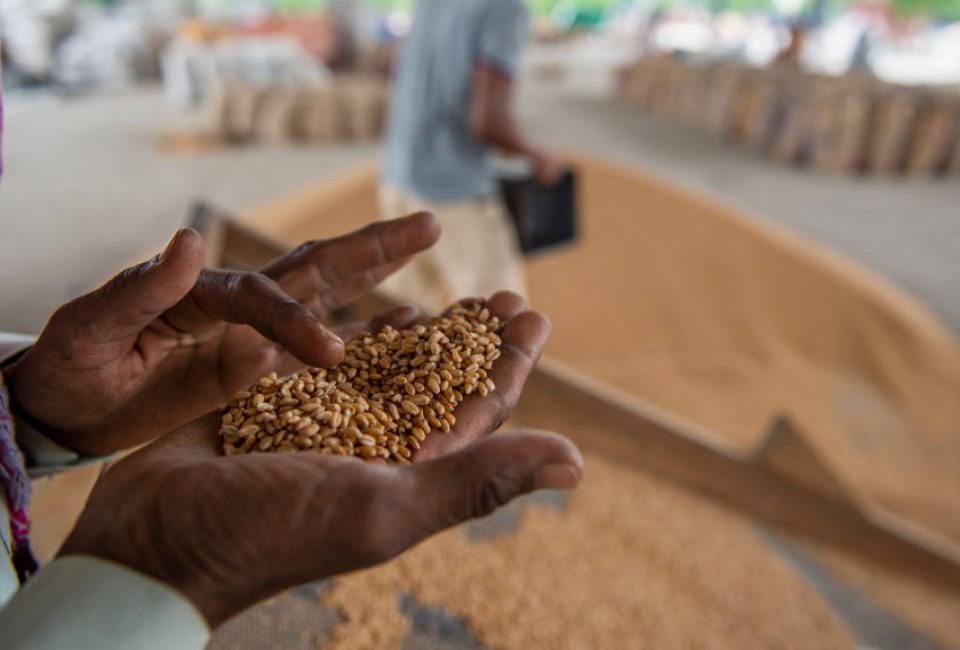Tractor Operation: 5 Most Important Things To Note

Women Empowerment: TOG Trains 50 women on Tractor Operation in Ebonyi
April 19, 2022
TOG Offers Harvesting Operations to Flour Mills Up North
May 6, 2022Tractor operation is not a skill we are born with; it is something that is learned. A tractor, as a piece of machinery, can look challenging and complicated however with experience and a bit of practice, operating a tractor to perform its numerous functions can be quite simple and straightforward. Here are five important points to note when operating any tractor.
1. Familiarity with the Machinery
As a beginner, it is okay if one does not understand everything about the tractor and its parts immediately. However, professional operators need to understand the basic parts and functions of the tractor before operating one. This will help operators detect abnormalities and irregularities before or during operation. One way to get familiar with a tractor is to study the manufacturer’s guidelines.
2. Safety
Unfortunately, tractor-related accidents are the cause of an alarming number of disabling injuries and tragic loss of lives. Learning about safety measures can help operator avoid some of these accidents. Some safety measures that every tractor handler should know include:
- Ensure that everyone is clear from around the machinery before starting it.
- Restrict your speed during operation. Moving at a high speed and deciding to turn could cause a tumble. Slow down before making turns. Speed and obstacles don’t mix well.
- Use safety equipment like safety goggles and hearing protection during operation.
- Always keep three points of contact (e.g. two hands and one foot) with the machine or ground when climbing on or off
- No passenger should be allowed on a tractor designed for one person during operation as this can be dangerous. You can carry a passenger if the tractor is fitted with ROPS, cabs, an instructor seat, and a safety belt.
3. Emergency Management
Accidents can be minimized with safety precautions even though not avoided. In unavoidable accidental cases, the damage could be reduced if operators know how to manage an emergency. Managing a tractor-related accident can include learning how to stop all operations when hazardous and first aid for injured victims and fire management in cases of a chemical or electrical fire.
4. Maintenance
Tractors will lose functionality within a short working time of 5000 hours or less if not properly maintained and serviced in due time. The following considerations should be part of maintenance routine during tractor operation:
- Run a security check for obstacles and the condition of the engine and tires before operating. Also ensure that oil, fuel level, radiator, and fire extinguisher are in place.
- Warm up the machinery by keeping it running for 2-3 minutes before moving.
- Reduce engine speed to an idling position then apply brakes to stop a tractor after the operation.
5. Combination With Other Machinery
Tractors are designed to allow the attachment of implements to optimize performance on the field. Implements which can be attached to the tractor include the plough, ridges, harrows, planters, harvesters, sprayers, and cultivators. These attachments are determinants of what more the tractor can do, which could be loosening up the soil, and gathering crops, operator should understand the compatibility between tractors and attachments. While some tractors allow ridges and plough but not harvesters, others allow harvesters.
TL;DR
Operating a tractor for the first time would be seamless if you equip yourself with the right knowledge of tractors. This knowledge includes being familiar with tractors, safety, and maintenance of tractors as well as what to do in cases of emergency. TOG is currently training men and women from underprivileged communities in tractor operation.


